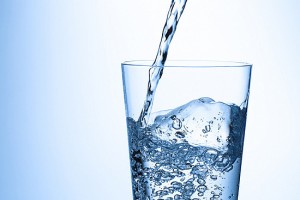
Ensuring Safe Hydration: The Impact of Analyzing Water for Consumption in the UAE
Introduction:
Access to safe drinking water is essential for maintaining public health and ensuring the well-being of communities. In the United Arab Emirates (UAE), where water scarcity is a significant concern, ensuring the quality of drinking water is of paramount importance. Analyzing water for consumption plays a crucial role in identifying contaminants and ensuring that water meets the required standards for human consumption. This essay explores the impact of analyzing water for consumption in the UAE, focusing on its significance, challenges, and implications for public health and sustainable development. Analyzing water for consumption is indispensable for ensuring safe drinking water in the UAE, mitigating health risks, and promoting sustainable development. Despite challenges such as resource constraints and technological limitations, ongoing efforts to improve water analysis methods and infrastructure are crucial for safeguarding public health and environmental integrity. By prioritizing water quality monitoring and adopting innovative solutions, the UAE can address current and emerging water challenges, ensuring a resilient and healthy future for its population
Significance of Analyzing Water for Consumption:
Water analysis involves assessing various parameters such as pH, turbidity, dissolved oxygen, and the presence of contaminants like heavy metals, bacteria, and chemicals. In the UAE, where water is primarily sourced from desalination plants, monitoring water quality is critical due to potential contamination during the treatment process or distribution. Analyzing water ensures that it complies with national and international standards set by organizations like the World Health Organization (WHO) and local regulatory bodies. By identifying potential health hazards, water analysis helps prevent waterborne diseases and protects public health.
Challenges in Water Analysis:
Despite the importance of water analysis, several challenges exist in ensuring the quality and reliability of results. One challenge is the availability of skilled personnel and advanced laboratories equipped with state-of-the-art technology for conducting comprehensive water testing. Another challenge is the vast and diverse sources of water in the UAE, including groundwater, desalinated water, and recycled wastewater, each requiring specific testing protocols. Additionally, the rapid pace of urbanization and industrialization in the UAE increases the risk of pollution, necessitating continuous monitoring and assessment of water quality.
Implications for Public Health:
The quality of drinking water directly impacts public health, as contaminated water can lead to various illnesses, including gastrointestinal infections, cholera, and typhoid fever. By analyzing water for consumption, authorities can detect and mitigate potential health risks, safeguarding the well-being of residents and visitors. Moreover, ensuring access to safe drinking water is essential for achieving the Sustainable Development Goals (SDGs), particularly Goal 6, which aims to ensure availability and sustainable management of water and sanitation for all.
Sustainable Development and Environmental Impact:
In addition to public health concerns, analyzing water for consumption contributes to environmental sustainability by promoting responsible water management practices. By monitoring water quality and identifying sources of pollution, stakeholders can implement measures to reduce contamination and protect natural ecosystems. Furthermore, promoting water conservation and efficiency through awareness campaigns and regulatory measures helps mitigate the impact of water scarcity and ensures the long-term sustainability of water resources in the UAE.
Technological Innovations and Future Outlook:
Advancements in technology, such as remote sensing, nanotechnology, and machine learning, are revolutionizing water analysis methods, making them more efficient, cost-effective, and accessible. Remote sensing techniques allow for real-time monitoring of water bodies, enabling early detection of changes in water quality. Nanotechnology-based sensors offer high sensitivity and specificity in detecting trace contaminants, enhancing the accuracy of water analysis. Additionally, machine learning algorithms can analyze vast amounts of data to identify patterns and trends, facilitating predictive modeling of water quality dynamics.
